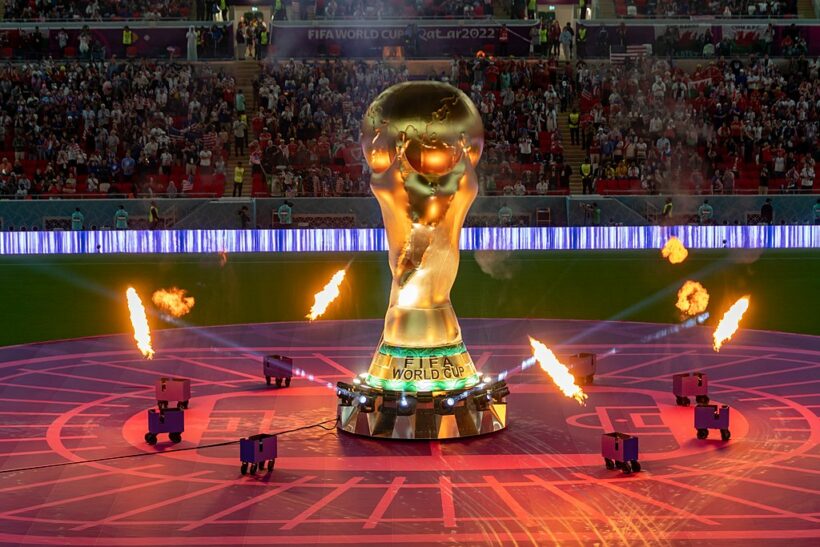The Qatar World Cup has entered its third week. Yet, the demands to boycott this event have never ceased. Several campaigns started against Qatar because of its strict rules and its violations of migrants’ rights.
It is the first time ever that such a high-scale event is being held in the Middle East and in an Arab Muslim country. It is worth noting that Qatar is considered one of the richest countries in the world. Therefore, they would not find any financial obstacles when preparing or hosting such an international event.
The World Cup in Qatar has been faced with criticisms starting from the moment, 10 years ago, it was announced that they won the bid to host the world cup in 2022. Nevertheless, as time approached, the protests became louder, and people started calling for a boycott of the event.
First, it was declared that Qatar bribed its way into winning the bid. Then it was proven (Washington Post) that most of the countries that hosted the world cup bribed their way into doing so. Two wrongs don’t make a right, but that also does not justify why we should boycott this year’s world cup.
Ayman Mohyeldin, an opinion columnist with MSNBC wrote about the double standards the Qatar World Cup is facing and posted several threads about it on his Instagram page highlighting every aspect of these campaigns. Mohyeldin shed light on the hypocrisy of Western media that choose to highlight certain events and ignore others. He added how there was a difference between the way the news channels tackle each event in Qatar with a particularly violent jargon as opposed to the numerous violations that the West commits without even reaching the news or without leading to as much controversy.
Another important issue that we need to shed light upon is Qatar’s violations of immigrant workers’ rights. The working conditions have been dire and were almost classified as modern slavery by Amnesty International. Nevertheless, Qatar is working its way towards improving the working conditions for immigrants as reported by the International Labour Organisation (ILO). They added that the country created new reforms and is in the process of implementing new policies and actions towards enhancing the situation for immigrants in Qatar.
This is, in no way, a justification of what Qatar is doing. We have to harshly criticize every human rights violations that we see in the world; and Qatar’s treatment of migrant workers is inhumane, as reported by Amnesty International.
The BBC did not broadcast the opening ceremony of the world cup; a French magazine published a caricature portraying Qatari players as terrorists; popular entertainers voiced their oppositions of the World Cup and boycotted it; and Germany stated that they would not celebrate their win in Qatar in case they won the World Cup because FIFA did not allow the “one love” badge to be worn by the German players.
If boycotting World Cup games due to human rights violations is a consideration, boycotting all the other nations in violations of human rights that hosted each international event should logically be considered. We should have boycotted China for its, yet they hosted the Olympics this year. We should also have boycotted Russia for its strict policies and human rights violations that were noted even before they won the bid to host the 2018 world cup. Israel as well should have been criticised for its countless human rights violations against Palestinians. Yet, they hosted Eurovision this year and no one pointed fingers at them nor demanded a boycott.
These examples make one wonder, how can we decide which international event to boycott and for which reasons? If we were to apply the reasoning of human rights violations, we should have focused on every single country that is putting a bid to host any international event. Otherwise, our standards will be faulty, and our judgment will be tarnished by our own agendas.
Our focus must be on, how to protect the immigrants in each country in of the world instead of which country to boycott. Boycotting the event would not resolve the issues at hand, but trying to find solutions for these problems is what would work. We should not face violence with violence. We should find ways to stop that violence instead!










